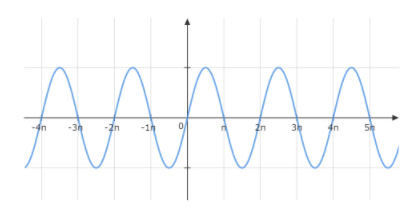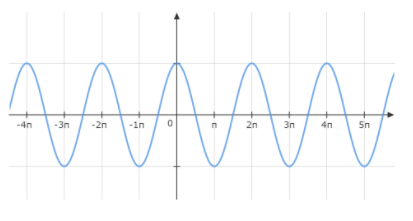Question
Question: Prove that the function defined by \[f(x) = \tan x\] is a continuous function....
Prove that the function defined by f(x)=tanx is a continuous function.
Solution
We prove continuity of the function tanx by writing in its simpler form of fraction whose continuity is known.
- A continuous function is a function that is continuous on every point of its domain. Also, we can always check continuity by drawing a graph, where the function is continuous means there is no breaking point in the curve.
Complete step-by-step answer:
We know, tanx=cosxsinx
We know graph of sinx looks like

Since, there is no point where the curve breaks, so the function sinx is continuous everywhere on R
Also, the graph of cosx looks like.

Since, there is no point where the curve breaks, so the function cosx is continuous everywhere on R.
We know from the algebra of continuous functions that if both p(x) and q(x) are continuous functions then the function defined by their fraction f(x)=q(x)p(x) is also continuous for all R such that q(x)=0
Let us assume p(x)=sinx and q(x)=cosx
Then by Algebra of continuous functions f(x)=cosxsinx is also continuous everywhere except at points where q(x)=0
⇒f(x)=tanx is continuous everywhere except at points where q(x)=0
Now we find points where ⇒f(x)=tanx is not continuous.
We have q(x)=0⇒cos(x)=0
We will take all other values on R except where the values of cosx become zero because if we make the denominator zero will make the fraction undefined.
